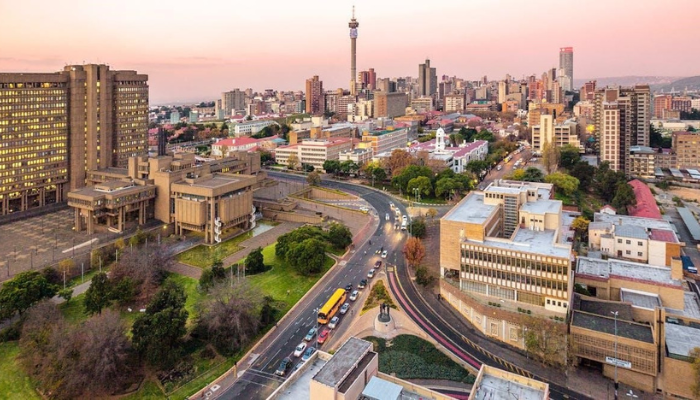Nigeria, Africa’s most populous country and a major economic force on the continent, continues to struggle with a critical infrastructure deficit that threatens its long-term development goals. With an annual funding gap estimated at $100 billion by the African Development Bank, the country’s outdated and overstretched infrastructure system remains a significant constraint on productivity, investment, and public service delivery.
Decades of underinvestment have left the country with decaying roads, an unreliable power grid, weak healthcare services, and insufficient digital infrastructure. Despite having a road network of about 195,000 kilometres, the Federal Ministry of Works reports that more than 70 percent of these roads are in poor condition. This has led to high transportation costs, delays in the movement of goods, and limited access to markets, especially for smallholder farmers and traders in rural areas. Rail transport remains grossly inadequate, with just 3,500 kilometres of operational tracks serving a population exceeding 220 million.
The power sector also continues to underperform. While installed capacity stands at 12,500 megawatts, actual generation rarely exceeds 4,000 megawatts due to issues such as transmission losses and gas supply interruptions. According to the Nigerian Electricity Regulatory Commission, this leaves per capita electricity consumption at only 144 kilowatt-hours annually dramatically lower than the global average of over 3,000. Businesses are forced to rely heavily on backup generators, spending an estimated $29 billion each year on alternative power sources, according to the International Finance Corporation.

Healthcare is another area of concern. The doctor-to-patient ratio remains critically low at 1:5,500, far above the World Health Organization’s recommended threshold of 1:1,000. The country has approximately 40,000 doctors to serve its growing population and only 0.5 hospital beds per 1,000 people. The consequences of this undercapacity are stark. UNICEF data reveals that Nigeria, despite representing just 2.6 percent of the global population, accounts for 14 percent of worldwide maternal deaths.
In terms of digital infrastructure, only 53 percent of Nigerians have internet access, with broadband penetration at 45 percent. This is significantly lower than in comparable economies, such as South Africa, where broadband access has reached 70 percent. With over 60 percent of Nigeria’s population under the age of 25, the digital gap not only hinders education and communication but also limits the country’s ability to harness the potential of its young, tech-savvy population.
While the infrastructure deficit poses a daunting challenge, it also presents an opportunity. Nigeria has a growing private sector and more than $100 billion in institutional assets held by pension funds, insurance firms, and other financial institutions. Yet, less than five percent of this capital is currently directed toward infrastructure. In contrast, South Africa allocates around 15 percent of its institutional assets to infrastructure-related investments. Private equity and venture capital inflows to Nigeria reached $1.2 billion in 2023, but little of that capital flowed into infrastructure projects, mainly due to high perceived risks and structural hurdles.
Among the barriers discouraging investment are poor data availability, which makes it difficult for investors to assess project feasibility. Sector-specific data, such as estimates on solar and hydropower potential, remain outdated or inaccessible, undermining efforts to develop bankable projects. Regulatory uncertainty is another key issue. Policy shifts such as the abrupt removal of fuel subsidies in 2023 have left investors wary of long-term commitments. In addition, a weak legal system and slow resolution of contract disputes contribute to a climate of unpredictability.
Currency volatility also plays a significant role in deterring capital flows. The naira depreciated by more than 60 percent between 2022 and 2024, making it difficult for investors to repatriate returns or hedge against losses. Even when development finance institutions such as the AfDB or IFC make funding commitments, disbursement can be delayed due to bureaucratic bottlenecks, increasing project delivery costs. In 2023 alone, these institutions committed $2.5 billion to Nigerian infrastructure, but many of the projects experienced significant delays.
Despite these challenges, there are paths forward. Government agencies and the Nigeria Sovereign Investment Authority are being urged to publish transparent and reliable data and conduct feasibility studies to help identify and prepare projects for investment. Nigeria’s Public-Private Partnership framework, which includes 52 active projects valued at $14 billion, could serve as a foundation for scaling up investment if strengthened with more consistent contracts and legal protections.
Multilateral organisations and DFIs are also being encouraged to expand the use of political risk insurance, credit guarantees, and first-loss capital models to make projects more attractive. NSIA’s Infrastructure Fund is often cited as a leading example of such de-risking strategies. Furthermore, experts argue for a streamlined approach to project funding, where due diligence is balanced with timely disbursement. Past delays, such as those encountered in AfDB’s $200 million power sector project in 2024, are seen as setbacks that must be avoided in future deals.
Pilot projects, especially in renewable energy and digital infrastructure, are seen as essential to building investor confidence. The Katsina Wind Farm, which attracted $25 million in private investment, stands out as a successful case of early-stage capital mobilization. On the macroeconomic front, efforts by the Central Bank of Nigeria to stabilise the naira have shown some promise, with a reported 20 percent reduction in volatility in 2024. But sustained reforms in monetary policy, foreign exchange management, and judicial efficiency are still required to reassure investors.
Infrastructure is not just a public good; it is the foundation of a competitive economy. With projects like the $2.8 billion AKK Gas Pipeline a joint effort between public and private capital Nigeria has demonstrated that large-scale investment is possible when risk is properly managed. But time is of the essence. As global interest in African infrastructure rises and domestic capital pools expand, Nigeria must move swiftly to close its infrastructure gap and rewrite its investment narrative. The opportunity is there, but the window for action is narrowing.




